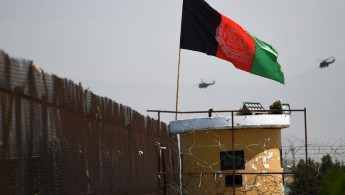Migrant rights group concerned over lack of planning for Afghan evacuees
As the US troop withdrawal from Afghanistan approaches, the window for evacuating local military contractors is closing.
The International Refugee Assistance Project (IRAP) have voiced their concerns over Afghan military contractors who remain in the country and whose lives are at risk after having worked for the US military. Many of them are in the process of applying for Special Immigrant Visas (SIVs), which they are entitled to after working for the US military for at least two years.
"There are still no specifics of how an evacuation would happen," Adam Bates, policy counsel at IRAP, told The New Arab, following US President Joe Biden’s address to reporters last week on the pullout.
"There was no mention of where they'd been taken. It should be a US territory," he said, noting that Guam has been used as a transit point for evacuating Vietnamese and Kurds, setting a precedent that could be used for the resettlement of Afghan contractors.
Bates is concerned over recent suggestions of using a third country for the evacuations of Afghans.
"We wonder why we’re even talking to third countries. It doesn’t seem like a necessary component of the evacuation," said Bates.
"The only reason I can think of to find a third country is to circumvent humanitarian law," he added.
In a televised statement last week, Biden said "the operation has identified US facilities outside of the continental United States, as well as in third countries, to host our Afghan allies… if they so choose".
"And, starting this month, we’re going to begin… relocation flights for Afghanistan SIV applicants and their families who choose to leave," he added.
It is estimated that there are at least 70,000 Afghan contractors and their families who are waiting to be evacuated. With President Biden’s recent address in which he said the US would be out of the country by August 31, the window for safely repatriating these Afghans is narrowing.
As of now, there is no evacuation plan for these workers, despite a more than a year since the US troop withdrawal began.





 Follow the Middle East's top stories in English at The New Arab on Google News
Follow the Middle East's top stories in English at The New Arab on Google News


